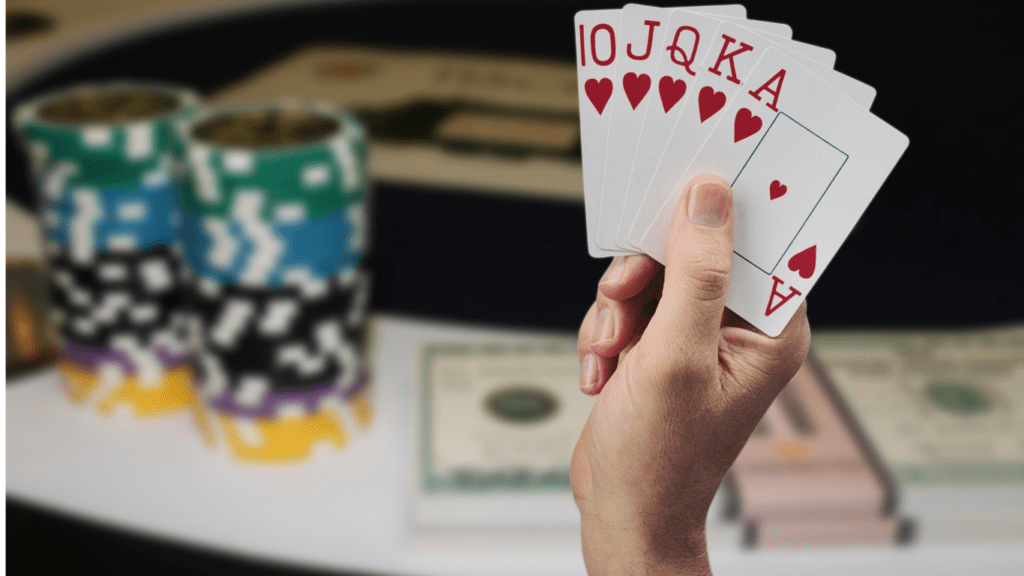Understanding the Importance of Poker Books
Reading poker books transforms a player’s approach. These books, written by experts, break down successful strategies, hand analyses, and poker psychology. Studying them gives players insight into the minds of professionals, revealing techniques that may not be apparent through experience alone.
Poker books cover various game types, from Texas Hold’em to Omaha. They often include real-world examples and mathematical models to illustrate winning strategies. By delving into these resources, players can learn to read opponents, manage bankrolls, and apply statistical analysis to their game.
Investing time in these books provides a solid foundation for consistent improvement. They help bridge the gap between basic understanding and advanced play, enabling players to identify and correct mistakes. Whether you’re a novice or seasoned player, poker books are indispensable for refining skills and gaining a competitive edge.
Criteria for Selecting Top Poker Books
Choosing the right poker books can significantly enhance your game. Here’s what I look for:
Author Expertise
I prioritize books written by established poker experts. Authors like:
- Doyle Brunson
- David Sklansky
- Phil Hellmuth
for example, are renowned for their extensive knowledge and track records. Verified credentials and notable tournament wins validate an author’s authority in the poker world.
Content Quality
High-quality content is essential for learning. I avoid jargon-heavy texts and focus on books that explain concepts clearly. Books like “The Theory of Poker” and “Harrington on Hold’em” are known for their clarity and structured approach. These texts ensure both beginners and advanced players can comprehend and apply the strategies discussed.
Practical Applications
Effective poker books offer practical applications. I look for detailed hand analyses, examples of real-game situations, and exercises for readers to practice. Books such as “The Mental Game of Poker” by Jared Tendler provide actionable techniques. Practical insights help bridge theoretical knowledge and in-game application, leading to improved decision-making skills.
Top 10 Poker Books to Improve Your Game

Exploring poker literature offers insights that sharpen skills. Here are ten essential poker books to elevate your game.
The Theory of Poker by David Sklansky
David Sklansky’s book dissects poker strategy by analyzing the fundamental theories behind various game situations. It covers key concepts like implied odds, pot odds, and game theory, providing comprehensive examples. This book suits both beginners and intermediate players seeking a deeper understanding of poker’s underlying strategies.
Super/System by Doyle Brunson
Doyle Brunson’s “Super/System” is a classic, often dubbed the “Bible of Poker.” Brunson and other pros share wisdom on different poker forms. It offers practical tips on hand selection, positional play, and bluffing, enriched with illustrative hand examples. The detailed strategies make it a must-read for serious poker enthusiasts.
Harrington on Hold’em by Dan Harrington
Dan Harrington, a World Series of Poker (WSOP) champion, presents a comprehensive guide to Texas Hold’em tournaments. The book provides strategic insights on betting structures, hand analysis, and final-table play. Packed with exercises and real-hand discussions, it’s an excellent resource for tournament players.
Applications of No-Limit Hold’em by Matthew Janda
Matthew Janda’s book dives into advanced no-limit Hold’em strategies. It focuses on mathematical and theoretical concepts like ranges, balance, and exploitative play. The content includes complex examples and quizzes, making it ideal for advanced players looking to refine their analytical skills.
The Mental Game of Poker by Jared Tendler
Jared Tendler addresses the psychological aspects of poker, such as tilt control, mindset, and emotional regulation. The book provides practical advice and techniques for overcoming mental barriers, enhancing focus, and maintaining a disciplined approach. It’s a valuable resource for those aiming to master the mental challenges of poker.
Poker Brat by Phil Hellmuth
Phil Hellmuth’s autobiography, “Poker Brat,” offers a personal narrative of his journey in the poker world. The book combines anecdotes with strategic insights, reflecting on his successes and failures. It’s an engaging read for fans of Hellmuth and those interested in the personal experiences of a poker legend.
Every Hand Revealed by Gus Hansen
Gus Hansen reveals his thought process during his win at the 2007 Aussie Millions Poker Championship. The book includes detailed hand-by-hand analysis, showcasing his aggressive style and strategic decisions. It’s a unique and instructive read for players aiming to understand high-stakes tournament play.
The Mathematics of Poker by Bill Chen and Jerrod Ankenman
Bill Chen and Jerrod Ankenman explore the mathematical underpinnings of poker. The book covers probability theory, expected value, and game theory, using equations and models to explain concepts. It’s suited for players with a mathematical inclination wanting to apply quantitative analysis to poker.
Moorman’s Book of Poker by Chris Moorman
Chris Moorman provides a curated analysis of real-life hands, explained by one of the most successful online tournament players. The book covers multiple aspects of tournament play, with detailed breakdowns and reflective commentary. It’s an excellent guide for online players seeking proven strategies.
Kill Everyone by Lee Nelson
Lee Nelson and his co-authors provide insights into tournament strategy, focusing on aggressive play and exploiting opponents. The book includes sections on shorthanded play, optimal betting, and ICM (Independent Chip Model) considerations. It’s perfect for players who want to dominate the tournament field.
These books offer a wealth of knowledge from poker experts, covering various aspects of the game and catering to different skill levels. Whether you’re a beginner or an experienced player, these resources can significantly improve your poker skills.
How to Effectively Use These Books
Using top poker books strategically can elevate your game. Below are some beneficial practices.
- Study Consistently
Consistency in studying poker books yields better results. Schedule regular study sessions to absorb and retain the material. For instance, reading “The Theory of Poker” by David Sklansky in short, focused periods helps internalize fundamental strategies. Incremental learning keeps you engaged and prevents information overload.
- Apply What You Learn
Applying concepts from books like “Super/System” by Doyle Brunson ensures practical understanding. Incorporate learned strategies during real games or online sessions. Experiment with techniques discussed in “Applications of No-Limit Hold’em” by Matthew Janda to see what works in various scenarios. This hands-on approach turns theory into practice, improving decision-making.
- Discuss with Other Players
Engage in discussions with fellow players to deepen your understanding. Join forums or local poker groups to exchange insights on books such as “Harrington on Hold’em” by Dan Harrington. Sharing experiences and interpretations often uncovers new perspectives and refines your strategies. Discussions also keep you motivated and updated on evolving poker trends.


 Pedro Brandon played a crucial role in developing the content strategy for Bet Roll Gamble, ensuring the platform offers timely, accurate, and engaging insights across sports betting, poker, horse racing, and esports. His ability to identify trends and curate relevant content has helped attract a diverse audience, providing bettors with the strategies and updates they need to stay competitive.
Pedro Brandon played a crucial role in developing the content strategy for Bet Roll Gamble, ensuring the platform offers timely, accurate, and engaging insights across sports betting, poker, horse racing, and esports. His ability to identify trends and curate relevant content has helped attract a diverse audience, providing bettors with the strategies and updates they need to stay competitive.